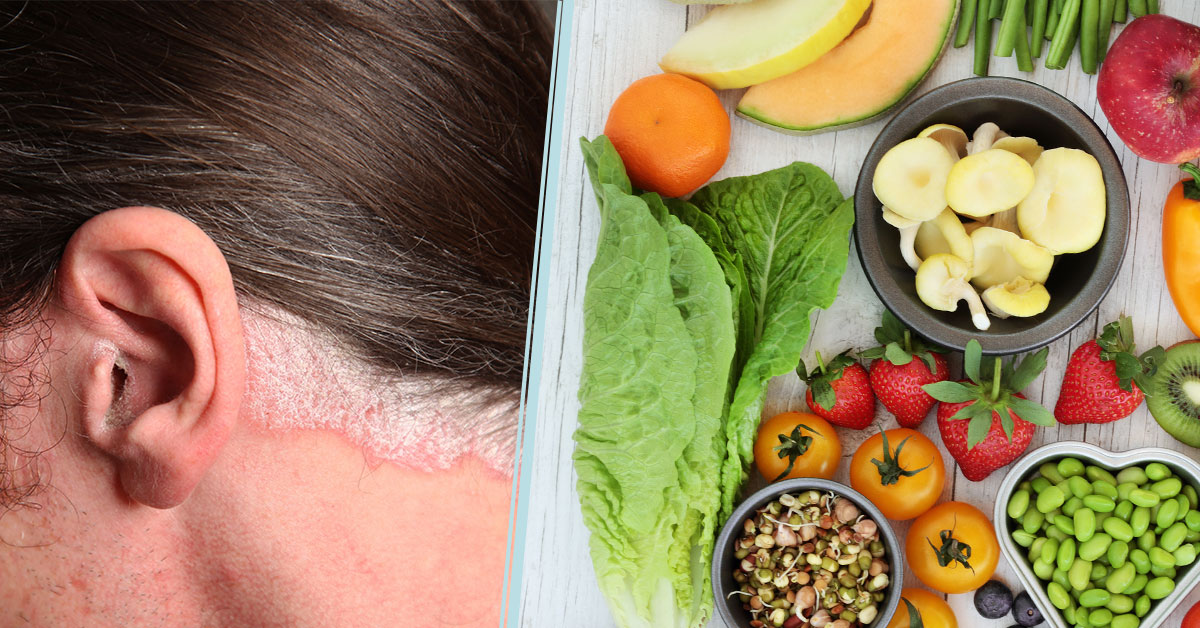WHAT HAPPENS TO OUR BODY WHEN WE CONSUME PROTEIN
The health benefits of it!

Psoriasis is an autoimmune skin condition where the body fails to recognize its own tissue and attacks it, leading to increased production of skin cells that form plaques on the patient's skin. These plaques are red, scaly, and usually cause itching and/or pain.
It has been observed that the type of food consumed by patients with this condition can either improve or worsen the symptoms.
Therefore, it is recommended to avoid foods that are highly processed (white flour), rich in saturated and trans fats (junk food), contain a high percentage of added sugar (sweets), as well as gluten, dairy products, and alcohol.
So, what can people with psoriasis eat?
Fruits and Vegetables: Fruits and vegetables are an excellent source of vitamins and trace elements and offer protective benefits for the human body. They can be consumed raw, roasted, boiled, or dried without added sugar.
Fish: A great source of lean protein, rich in nutrients and Omega-3 fatty acids. It's best to consume fish grilled or cooked.
Nuts (unsalted): Nuts provide a wealth of nutrients, such as unsaturated fats (Omega-3 and Omega-6), antioxidants, plant-based protein, fiber, and vitamins. Due to their high fat content, portion control is necessary.
Lean Animal Protein (chicken, turkey, rabbit): These foods can provide all the nutrients you need without eating red meat.
Legumes: A key component of the Mediterranean diet, legumes are rich in fiber, plant-based protein, starch, vitamins, phytosterols, saponins, plant acids, and minerals. You can enjoy them in soups, salads, or as pasta.
Dairy: Dairy products should be consumed in moderation, no more than one serving per day, to avoid negatively affecting psoriasis symptoms. A serving of dairy is considered to be 1 cup of yogurt, 30 grams of cheese, or 1 glass of milk (200 ml).
Seeds (flaxseed, poppy seed, chia, sunflower seeds, etc.): Don't forget to add seeds to salads, breakfasts, or bread. They are an excellent source of nutrients beneficial for your health!
Whole-Grain Products with Minimal Processing: Choose bread, rice, and pasta that have undergone minimal processing, as highly processed foods raise the inflammatory index (which is already elevated in psoriasis).
Olive Oil: The king of the Mediterranean diet! Rich in monounsaturated fatty acids, it also contains phenols that act as antioxidants and chemoprotective agents. It should be consumed in moderation.
Honey: Primarily composed of carbohydrates, honey also contains vitamins, minerals, and trace elements. It has anti-inflammatory, antioxidant, and healing properties. It is recommended to consume it in moderation.
